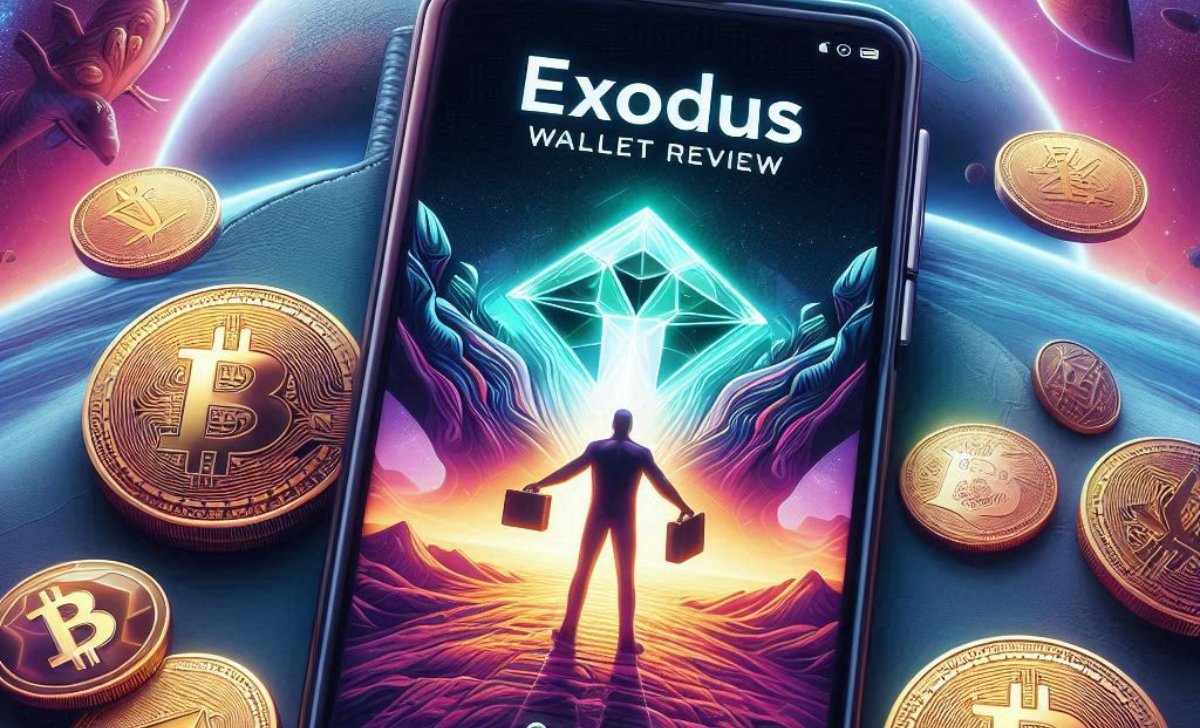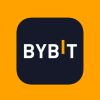Exodus wallet review is essential for anyone looking for a secure and user-friendly way to manage cryptocurrencies. This popular multi-asset wallet offers a sleek interface, built-in exchange, and staking options, making it a top choice for both beginners and experienced users.
In this review, TopCoin9’ll help you explore its key features, security measures, pros and cons, setup process, and how it compares to other crypto wallets.
What Is Exodus Wallet?

Exodus Wallet is a non-custodial crypto wallet launched in 2015 by JP Richardson and Daniel Castagnoli. This means that users have full control over their private keys, eliminating the need to rely on third-party services.
Exodus supports over 300 cryptocurrencies, including Bitcoin (BTC), Ethereum (ETH), Cardano (ADA), Solana (SOL), and numerous other tokens. It is available on multiple platforms, including Desktop (Windows, macOS, Linux), Mobile (iOS, Android), and Browser Extension for Web3 transactions.
With its intuitive interface, even beginners can easily use Exodus for sending, receiving, and swapping cryptocurrencies. But aside from its convenience, what key features make Exodus stand out? Let’s find out in the next section!
Key Features of Exodus Wallet
When conducting an Exodus wallet review, it’s essential to highlight the key features that make this wallet stand out. Below are the most notable aspects that users appreciate.
- User-Friendly Interface: Exodus is designed with a sleek, modern interface that makes navigation intuitive for all users. Whether you’re a beginner or an experienced trader, the wallet ensures a smooth and hassle-free experience.
- Multi-Asset Support: With support for over 300 cryptocurrencies, Exodus allows users to manage a diverse portfolio in one place. This eliminates the need for multiple wallets and enhances convenience for crypto investors.
- Built-in Exchange: Exodus features an integrated exchange that enables users to swap cryptocurrencies directly within the app. This eliminates the need for third-party platforms, making transactions faster and more secure.
- Hardware Wallet Integration: For added security, Exodus can be connected to Trezor hardware wallets, allowing users to store their assets offline. This feature significantly reduces the risk of hacking and unauthorized access.
- Staking Rewards: Exodus supports staking for various cryptocurrencies, including Cardano (ADA), Solana (SOL), and Tezos (XTZ). Users can earn passive income simply by holding and staking their assets within the wallet.
- 24/7 Customer Support: Unlike most decentralized wallets, Exodus offers round-the-clock customer support to assist users with any issues. This ensures a smoother experience, especially for those who need quick troubleshooting.
These features make Exodus a strong contender among crypto wallets. But how secure is it? Let’s take a closer look.
Is Exodus Wallet Safe?

Exodus is considered a secure wallet because it is non-custodial, meaning users control their funds without intermediaries. However, there are some security concerns to be aware of:
- Private Key Control: Exodus does not store users’ private keys, reducing the risk of centralized hacks.
- Encryption & Security: The wallet uses AES-256 encryption and SHA-512 hashing for data protection.
- No 2FA (Two-Factor Authentication): One downside is that Exodus does not support 2FA, making it more vulnerable if a user’s device is compromised.
Overall, Exodus is safe if users take precautions, such as securing their private keys and using a hardware wallet. Now, let’s break down the pros and cons of Exodus Wallet in the next part!
Exodus Wallet Review: Pros and Cons
When evaluating crypto wallets, an Exodus Wallet Review helps users understand its strengths and weaknesses. Below are the key advantages and drawbacks to consider before using Exodus.
Pros
- Easy-to-Use Interface: Exodus offers a sleek and intuitive design, making it simple for users to navigate. Whether you’re a beginner or an experienced trader, the wallet provides a seamless user experience.
- Supports 300+ Cryptocurrencies: With compatibility for over 300 digital assets, Exodus allows users to manage a diverse portfolio in one place. This makes it a convenient option for those investing in multiple cryptocurrencies.
- Built-in Exchange: The wallet includes an integrated exchange feature, enabling users to swap cryptocurrencies directly within the app. This eliminates the need for third-party exchanges, ensuring faster and more secure transactions.
- No KYC Required: Exodus does not require users to complete Know Your Customer (KYC) verification, allowing for greater privacy. This means you can start using the wallet without sharing personal information.
- Staking Options: Users can stake various cryptocurrencies, such as Cardano (ADA), Solana (SOL), and Tezos (XTZ), to earn passive income. This feature makes Exodus not just a storage solution but also a way to generate rewards.
- 24/7 Customer Support: Unlike most decentralized wallets, Exodus offers round-the-clock customer support for its users. This ensures that assistance is always available for troubleshooting and general inquiries.
Cons
- No 2FA Support: Exodus does not offer two-factor authentication (2FA), which adds an extra layer of security. Without this feature, users face a higher risk of unauthorized access if their device is compromised.
- Not Fully Open-Source: While parts of Exodus Wallet’s code are open-source, some sections remain private. This lack of full transparency raises concerns among users who prefer completely open-source security models.
- High Swap Fees: The built-in exchange feature offers convenience but comes at a cost, as swap fees can be higher than those on decentralized exchanges (DEXs). Users who trade frequently may find these fees expensive over time.
Considering these pros and cons, if you’re interested in using Exodus, here’s a quick setup guide. Let’s explore that in the next section!
How to Set Up and Use Exodus Wallet

When exploring an Exodus crypto wallet review, it’s important to understand how to set up and start using the wallet efficiently. Follow these simple steps to get started:
- Step 1. Download Exodus Wallet: Visit the official Exodus website or search for it on the App Store or Google Play to download the app. Always ensure you’re getting it from a trusted source to avoid security risks.
- Step 2. Install and Create a Wallet: After installation, open the app and choose to create a new wallet or restore an existing one using a 12-word seed phrase. This seed phrase acts as your private key backup, giving you full control over your funds.
- Step 3. Secure Your Seed Phrase: Write down your 12-word seed phrase and store it in a safe, offline location — never share it with anyone. Losing this phrase means you won’t be able to recover your wallet if your device is lost or damaged.
- Step 4. Start Using Exodus Wallet: Once set up, you can send, receive, and swap cryptocurrencies directly within the app. Explore the wallet’s features, including staking and portfolio tracking, for a seamless crypto experience.
Setting up Exodus is straightforward, even for beginners. But how does it compare to other crypto wallets? Let’s find out in the next part!
Exodus Wallet Review vs Other Crypto Wallets

When analyzing different crypto wallets, a review of Exodus Wallet helps highlight how it compares in terms of security, usability, and features. Here’s how Exodus stacks up against some of its biggest competitors:
- Exodus vs Trust Wallet: Trust Wallet supports two-factor authentication (2FA) and offers better dApp integration for DeFi users. However, Exodus stands out with its superior UI/UX design and 24/7 customer support, making it more beginner-friendly.
- Exodus vs MetaMask: MetaMask is widely used for DeFi applications and Web3 interactions, making it a top choice for Ethereum-based transactions. In contrast, Exodus supports more cryptocurrencies, making it a better option for multi-asset portfolio management.
- Exodus vs Ledger: Ledger Wallet is a hardware wallet, offering superior security by storing private keys offline. Meanwhile, Exodus prioritizes convenience, providing an easy-to-use interface for quick transactions and asset management.
If you’re looking for an easy-to-use wallet, Exodus is a great choice. However, if security is your top priority, you may want to consider Trust Wallet or a hardware wallet like Ledger.
In summary, Exodus wallet review highlights its ease of use, security features, and versatility, making it a strong choice for crypto users. We hope this review was helpful — don’t forget to follow us for more in-depth crypto insights!

Ethan Carter, a seasoned crypto analyst with 7+ years of experience, has a deep understanding of market trends, DeFi, and blockchain technologies. His expert insights and market forecasts have helped thousands of traders and investors make informed decisions.
Email: [email protected]












